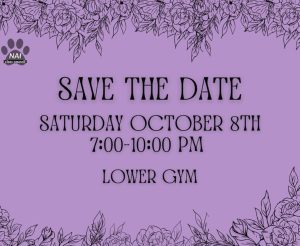Music Elitism
People listen to a wide range of genres, like classical, pop, and hip hop. But music elitists are out to ruin them all.
April 19, 2022
Music has always been an important aspect of my life.
It helped me learn my ABC’s.
It made swim practice bearable.
It helped me find friends.
Even now, it helps me focus while I study, vent my emotions, and it calms me down when I try to go to sleep. When I listen to a song, it’s like I got this music in my mind saying’ it’s gonna be alright.
But when someone makes a “harmless” joke about a music genre I like, I clam up and pretend that I don’t really listen to music.
What am I supposed to say?
“Oh yeah, remember that music genre that you joked about that you hate? Yeah, those songs are my jam.”
This happens because of music elitism. Some people believe that their music preferences make them superior. They ridicule others because of the artists or types of music that they prefer to listen to. When friends reject each other’s music tastes, it can often cause both to become uneasy and sometimes even sever the friendship entirely.
“Music elitists” want to feel special. This happens especially with people who tend to only listen to older songs. Bands from the ‘80s, like Green Day or Nine Inch Nails, aren’t as popular as they used to be. Because of this, the few that still listen to that music will sometimes hold themselves higher than the unsophisticated simpletons who listen to Bruno Mars and Olivia Rodrigo.
Oftentimes, people who listen to pop or country are put down. To some, both genres of music are considered “shallow”. The songs sometimes are repetitive and engineered solely to become a hit, rather than an expression of the artists’ feelings.
This can make people feel that it’s unfair that the songs that do become hits end up making a lot more money than the ones that are more “genuine”. Still, this isn’t an excuse to mock people about their song choices.
Stereotypes also play a role. When some people think of classical music, they think of a 71-year-old white man who plays the violin or grand piano. This is partially because during the 1600s, only the rich or upper class people could afford to attend classical music concerts. But now, even though classical concert seats can sometimes even cost less than football game seats, this perception still hasn’t changed.
This is the same with punk music and rap music. The belief that people who listen to punk are all goth, depressed, or generally just disconnected from the rest of the world. WIth rap music, it is often associated with gangs, violence, and drug use. But even though certain themes can overlap in genres, like the angst and rage felt in a lot of heavy metal songs, it doesn’t define the people who listen to it.
Music can mean different things to different people. Perhaps the lyrics happen to speak to the person, or the tune has some significance. The reason may just be that the person just likes listening to it. Either way, they should be respected.
People’s differences should never be preyed upon to make fun of others. Music is subjective; it’s different for everyone. It’s a form of art, and can bring people together.
Don’t be ashamed of what you listen to and don’t judge others because they’re different.












